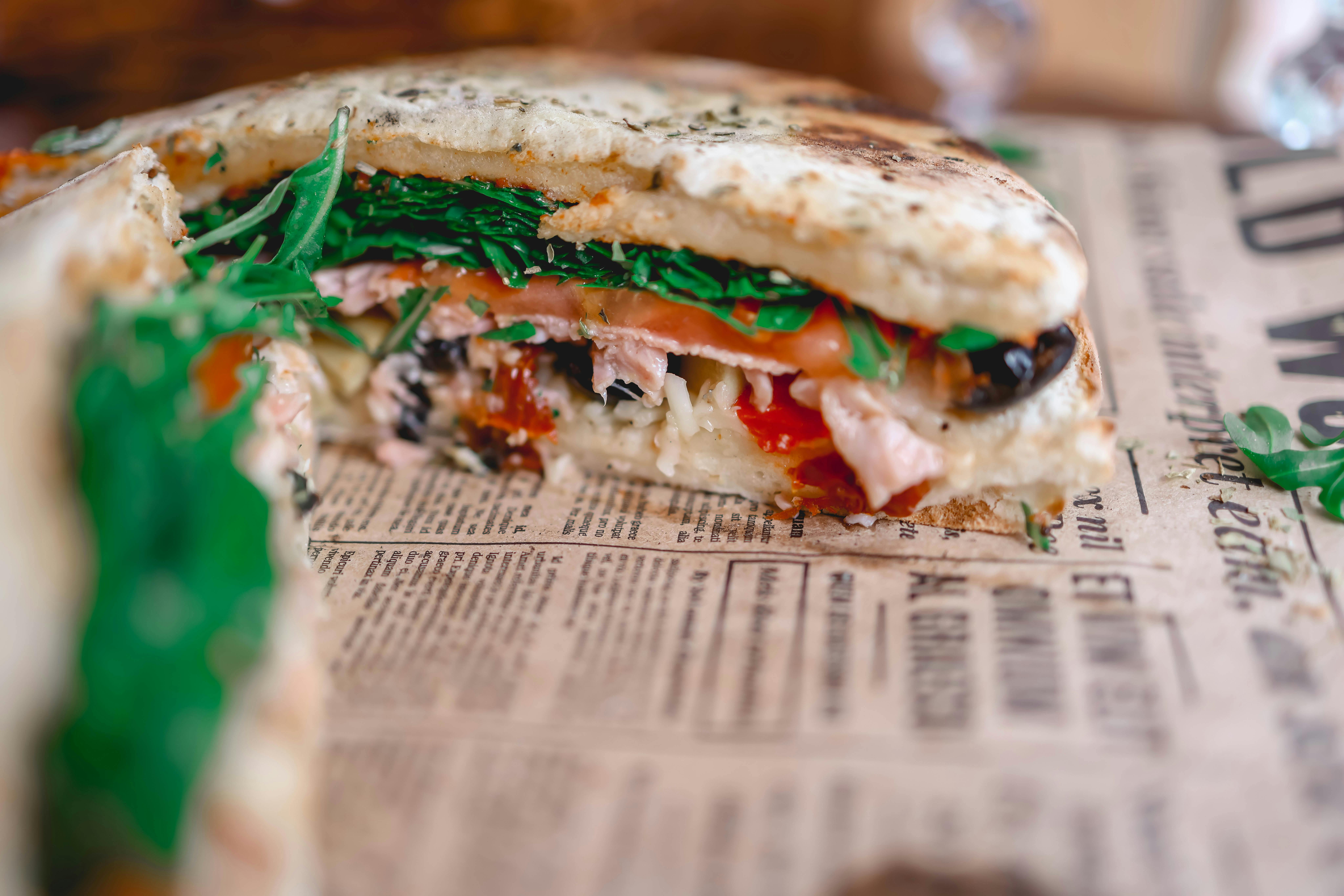Bread is a staple food for many people around the world. It has been around for centuries and it is a versatile and convenient source of nutrition. But when it comes to teeth, is bread bad for them? Many people believe that bread can cause tooth decay, but there is some evidence to suggest that this isn’t necessarily the case. This article will discuss the potential effects of bread on teeth and what you can do to minimize any negative impacts.No, bread is not bad for teeth. Bread is made up of carbohydrates which, when broken down, release sugars into the mouth. These sugars can cause bacteria to grow on the teeth, leading to tooth decay. However, if eaten in moderation and with proper care to brush and floss regularly, bread can be a part of a healthy diet for your teeth.
What Are the Effects of Eating Bread on Teeth?
Eating bread can have both positive and negative effects on teeth. Bread is a good source of carbohydrates and can provide energy to the body, but it can also contain sugars that can increase the risk of tooth decay. Bread also contains some minerals and vitamins that can help promote strong teeth and healthy gums. However, eating too much bread can lead to an excess of carbohydrates in the diet, which can be harmful to teeth.
The type of bread consumed also affects its impact on teeth. White bread is more likely to cause tooth decay than whole grain bread because it has higher levels of sugar and fewer nutrients. Whole grain bread contains more fiber and other nutrients that help reduce plaque buildup on the teeth.
Bread may also affect saliva production in the mouth. Saliva helps wash away food particles and bacteria from the teeth, so having adequate saliva production is important for oral health. Eating certain types of bread may increase saliva production, while others may decrease it.
When eating bread, it is important to practice good oral hygiene habits such as brushing twice a day with a fluoride toothpaste and flossing daily to remove food particles from between the teeth. Eating a variety of foods including fruits, vegetables, lean proteins, dairy products, nuts, and whole grains is recommended for overall oral health. It is also important to limit sugary snacks between meals to help reduce the risk of tooth decay.
Does Eating Bread Cause Cavities?
Eating bread does not directly cause cavities, however, it can contribute to the development of cavities. Bread is composed of carbohydrates, which break down easily in the mouth and can be converted into sugar. The bacteria in the mouth feed on sugars, creating acid which can erode tooth enamel and lead to cavities. Therefore, while bread itself does not cause cavities, it can contribute to their formation if it is not eaten as part of a balanced diet.
The type of bread eaten also affects how likely it is to lead to cavities. White breads are more likely to break down quickly in the mouth than whole grain breads and therefore may contribute more to cavity formation. Additionally, some types of breads are loaded with sugar or other sweeteners which also increase the risk of cavities. Therefore, choosing a whole grain variety that is low in added sugars can help reduce the risk of developing cavities when eating bread.
In addition to choosing the right type of bread, eating it as part of a balanced diet is important for cavity prevention. Eating foods high in fiber such as fruits and vegetables along with bread will help reduce the amount of sugar available for bacteria in the mouth and thus reduce the risk of developing cavities. Additionally, brushing teeth after eating sugary or starchy foods will also help keep teeth healthy and prevent cavities from forming due to eating bread or other sugary foods.
Does Eating Bread Lead to Tooth Decay?
Eating bread can lead to tooth decay, but it isn’t the only cause. Bread is a carbohydrate, and when it mixes with saliva in your mouth, it breaks down into sugar. This sugar can then be converted into plaque, which can lead to tooth decay. Additionally, if you don’t brush your teeth after eating bread, the starch from the bread can get stuck between your teeth and create an environment for decay-causing bacteria to thrive.
It’s important to note that not all breads are created equal when it comes to tooth decay risk. White breads are typically more processed and contain more simple sugars than whole grain breads, which means they can break down into sugar faster. Whole grain breads tend to be higher in fiber, which slows down the rate at which sugar is released into your mouth.
To help prevent tooth decay from eating bread or other carbohydrates, make sure you brush your teeth after eating them and try to choose whole grain varieties whenever possible. Additionally, limiting snacking throughout the day and avoiding sugary beverages can also help reduce your risk of tooth decay.
What Are the Benefits of Eating Bread for Teeth?
Eating bread can be beneficial for your teeth in several ways. First, bread provides an important source of carbohydrates, which is necessary for providing energy to the body. Carbohydrates are also necessary to keep the teeth healthy and strong. Second, bread contains essential vitamins and minerals like vitamin A, calcium, phosphorus and magnesium that helps in building strong teeth. Third, eating bread helps to keep the mouth moist and prevents dryness which can cause tooth decay.
Bread is also an excellent source of fiber which helps to clean the teeth and remove plaque buildup from them. Bread also contains complex carbohydrates that help in regulating blood sugar levels which can help reduce the risk of cavities. The natural sugars found in bread help to provide a natural source of sweetness without any added sugar or artificial sweeteners.
Finally, eating bread can also help promote saliva production which helps protect against bacteria build up in the mouth. Saliva is important for breaking down food particles and washing away debris from the teeth. Eating bread regularly may even reduce your risk of developing gum disease because it helps keep your mouth healthy by cleaning debris between your teeth and providing essential minerals like calcium and phosphorus that are important for maintaining strong gums.
Overall, eating bread can be a great way to keep your teeth healthy and strong!

How Does Eating Bread Affect Your Teeth?
Eating bread can have both positive and negative effects on your teeth. On one hand, bread contains carbohydrates that can provide energy to the body, including the teeth. On the other hand, bread also contains starch and sugar which can put your teeth at risk for cavities and tooth decay.
The carbohydrates in bread provide energy to the cells in the teeth which help them stay strong and healthy. As long as you are brushing and flossing regularly, eating a slice of wheat or whole grain bread each day can actually be beneficial for your oral health.
However, if you’re eating white or processed breads, it is important to be mindful of how much sugar is in these products as too much sugar can lead to cavities and tooth decay. Even if you’re eating healthier varieties of breads, it’s still important to brush your teeth after eating them in order to remove any remaining particles from your mouth.
It is also a good idea to limit your consumption of sticky foods like raisins or dried fruit which can stick to the surface of your teeth and cause damage over time. Additionally, drinking plenty of water after meals can help flush away any remaining food particles that may have been left behind on the surface of your teeth.
Overall, eating bread in moderation can be beneficial for your oral health as long as you are mindful of which types you are consuming and make sure to brush and floss regularly after meals.
What Are the Nutrients in Bread That Benefit Teeth?
Bread is a great source of essential nutrients that are beneficial for your teeth. The most important nutrient in bread that benefits teeth is calcium. Calcium helps to strengthen the enamel on your teeth, making them less prone to decay and damage. Bread also contains phosphorus, which helps to remineralize teeth and prevent tooth decay. Other important nutrients found in bread that help keep teeth healthy include Vitamin A, Vitamin D, iron, magnesium, zinc, and riboflavin. Additionally, bread contains complex carbohydrates which break down slowly in the mouth and provide a slow release of energy over time. This helps to keep saliva production steady and reduce the risk of cavities caused by sugar spikes.
Bread can also help to reduce gum inflammation and improve overall oral health. It contains dietary fiber which helps to remove plaque from teeth while scrubbing away food particles that can cause cavities and gum disease. Whole grain breads are especially beneficial as they contain more fiber than refined grains.
In conclusion, bread is a great source of essential nutrients that benefit your teeth and overall oral health. Eating whole grain varieties of bread regularly can help to keep your teeth strong and healthy by providing calcium for enamel protection, phosphorus for remineralization of teeth, vitamins for gum health, complex carbohydrates for steady saliva production, and dietary fiber for removing plaque from teeth.
Minimizing Damage to Teeth When Eating Bread
It is important to take care of your teeth when eating any food, including bread. There are some simple steps you can take to minimize the damage to your teeth while enjoying bread.
The first step is to ensure you brush your teeth regularly and thoroughly. This will help remove plaque buildup and keep your teeth healthy overall. Additionally, brushing before eating bread will help reduce its acidity levels and prevent further damage.
The second step is to choose softer types of bread, such as white sandwich breads or whole-wheat breads. Harder crusty loaves can be more abrasive on the enamel of your teeth and can cause more damage over time.
Thirdly, you should always eat healthy snacks with your bread, such as fresh fruits or vegetables. Eating these alongside your bread will help protect your teeth from the acidity of the grains and provide a buffer against any potential damage.
Finally, make sure to drink plenty of water after consuming bread. This will help reduce the acidity levels in your mouth as well as help flush away any particles that may have been left behind in the process of eating it.
By following these simple steps, you can minimize the damage to your teeth when eating bread and enjoy it without worry!

Conclusion
Bread can be part of a healthy diet and is not always bad for your teeth. Regular brushing and flossing are the key to good oral hygiene. Eating bread in moderation can be beneficial, as it contains important vitamins and minerals that your body needs to stay healthy. However, too much bread can lead to tooth decay, gum disease, and other dental problems. It is important to maintain a balanced diet with plenty of fruits and vegetables, while avoiding too much sugar or white flour products. Bread is a staple food in many cultures around the world and can be enjoyed in moderation when paired with a healthy lifestyle.
Overall, bread can be part of a nutritious diet when eaten in moderation. Paying attention to the type of breads you eat and taking care of your teeth through regular brushing and flossing are key to preventing dental issues. Enjoying bread as part of a balanced diet is an easy way to improve your overall health while also enjoying flavorful meals.
